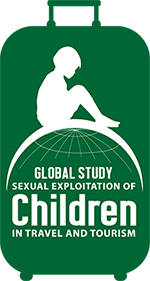Hotline: +381 61 63 84 071
Global Study on the Sexual Exploitation of Children in Travel and Tourism

A Global Study on the Sexual Exploitation of Children in Travel and Tourism was launched, as a result of a two-year research initiated by ECPAT International and its partners. Experts and other stakeholders contributed papers to the study representing diverse sectors including government, the hotel/travel industry, and civil society.
During the event that was following the launch, several interesting facts and figures from the Study were revealed:
• 27 million people around the world are currently enslaved;
• 90% of all countries have some form of law against sexual exploitation, but these laws are often not known, not enforced, and contain many loopholes. Often they also criminalize victims;
• There is a lack of good data around trends and factors contributing to the problem, particularly because of the increased anonymity of travel planning driven by the rise of the internet;
• Factors that exacerbate this problem include the rise of mass tourism and the increase in access to the internet (victims are often “groomed” remotely via the web prior to travel);
• Socially excluded communities (and children) are especially vulnerable;
• The US is not only a source country for sex tourism, but has also become a destination;
• Many incidents are perpetrated by “situational” offenders, meaning that they are not individuals who are known sex offenders or who have prior pedophilic tendencies;
• All countries have (or should have) the same three goals in combating this problem: prevent exploitation from happening, punish offenders, and find/serve victims in order to minimize harm done;
• One of the sustainable development goals is to end all forms of violence against children by 2030. To do this, more countries must ratify international conventions, more businesses must sign on to corporate code of conduct, and better data is needed to understand contributing factors as well as effective strategies for reducing violence.
The full Global Study report, as well as regional and country reports and the expert papers, can be found here: http://globalstudysectt.org/












 FACEBOOK
FACEBOOK TWITTER
TWITTER YOUTUBE
YOUTUBE